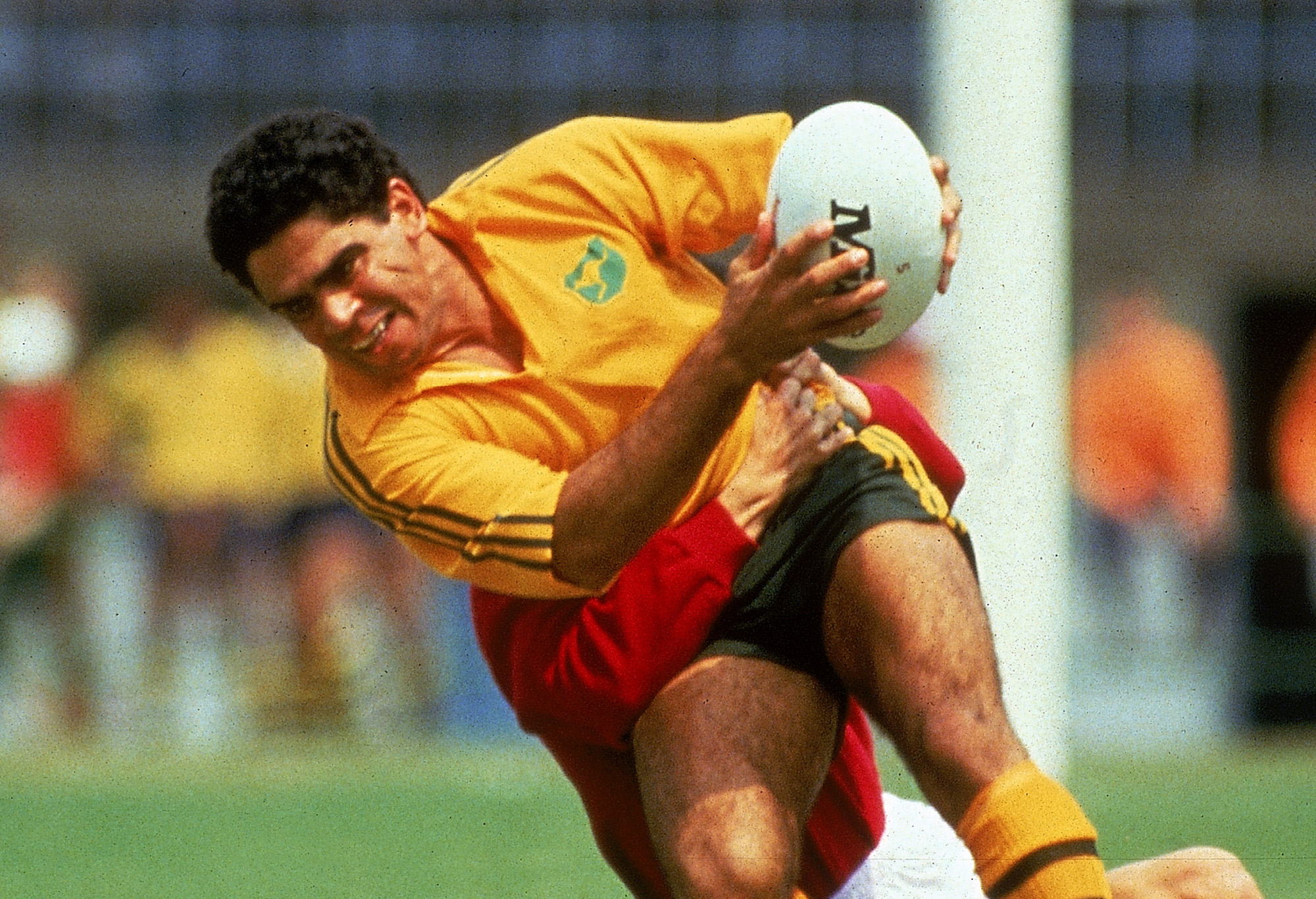Rediscovering Geoff Mould, Australia’s guru of running rugby

While reading David Campese’s book “The Last of the Dream Sellers”, I came across the name Geoff Mould, who I had either forgotten about or was not totally familiar with.
After delving into his history, I learnt more about the man and his rugby coaching philosophy. I had discovered a kindred soul who shared my belief in running rugby and scoring tries.
“I’m not into the kicking business, rolling mauls and repetitive scrums. It’s boring, all the teams that I’ve coached, and there’s been a lot of them over the years, have stuck very much to the pattern of play that I demand and that’s running rugby,” Mould told the Daily Telegraph.
Campese’s book describes Mould’s coaching of Mark Ella at Matraville High School, influenced by the “father of running rugby” Cyril Towers. Ella recalls; “we played a close-quarters support game, standing flat as well as close, so all we had to do was hand the ball to each other, performed at pace with simple passing to each other”. Ella noted, “many of the backline moves that the Australian team used at Test level in the early 1980s… were moves that we had used back in the Matraville under fifteens, we just took then with us as we moved up the ladder”.
Wallabies legend Mark Ella. (Photo by Getty Images)
Geoff Mould coached the basic principles of the game at entry level – handling, tackling and running and when they made it to the elite level, they have all the basic skills and fitness. You can see in today’s Wallabies the lack of basic skills hampering their performances. In Mould’s philosophy it was indoctrinated that you attack from any position on the field with supreme fitness and team support.
When Mould coached the Australian Schoolboys on their memorable tour of England, Ireland, Scotland, Wales and France in 1977/78, the boys were told that if they kicked unnecessarily, they would be dropped. Their theory was simple – run and pass at speed with unlimited support.
Another stipulation of Mould’s is that those who train will play. Imagine if this criteria was preached to today’s schoolboys and the difference it would make?
So, who is Geoff Mould?
He was born in 1934 and spent his childhood in Wagga Wagga, New South Wales. Geoff played rugby and cricket at school and represented Australia in baseball. As with his father he was a renaissance man with combined interests in art and rugby. “I was a bit of an anomaly,” he explains. “The bohemian, arty farty life, doesn’t really mix with sport.
Dual international Michael O’Connor also learned under Geoff Mould. (Photo by Bradley Kanaris/Getty Images)
The life of an artist was not quite financially fulfilling, so he became an art teacher before finding his true calling as a Physical Education teacher, enjoying the interacting with the children. After running school sport in New South Wales, he started coaching schoolboy rugby teams. The 1977/78 Australian Schoolboys team was one of the great school teams and produced great players including Michael O’Connor, Michael Hawker, the Ella brothers and Wally Lewis.
Remarkably, ten Wallabies rose from the tour. The team won 17 of 17 encounters and established Geoff Mould as an innovative coach.
After retiring from teaching he became a globetrotter, plying his trade around the world including New York, New Hampshire, South Africa, Argentina, New Zealand, Fiji and Samoa. A split with his second wife prompted his move to Sawtell in Coffs Harbour, where he coached the Coffs Harbour Rugby Club. He returned to coaching the Australian under-21s but retired in 2009.
At the age of 76, Mould was enticed to coach the first-grade side again and they won the competition in 2011. He planned to retire at the age of 79 but was still getting offers from around the world, but by then he felt he was too old.
It is quite apparent that great players do not always make great coaches, but excellent people managers do. The great player finds it difficult to understand the failings of inferior players, but a person-manager will bring out the best in a player and give them confidence to become a valuable member of the team.
A priority is getting to know the individuals and establishing the leaders of the group. Teachers are well equipped to become efficient rugby coaches, with Geoff Mould no exception. Taking a class and building a harmonious group that excels and returns good results is like the role of the rugby coach.
Is there a place in today’s rugby for a coach like Geoff Mould to earn their stripes in schoolboy rugby and build a career peaking on the international stage? I certainly hope so, with running rugby the goal.
